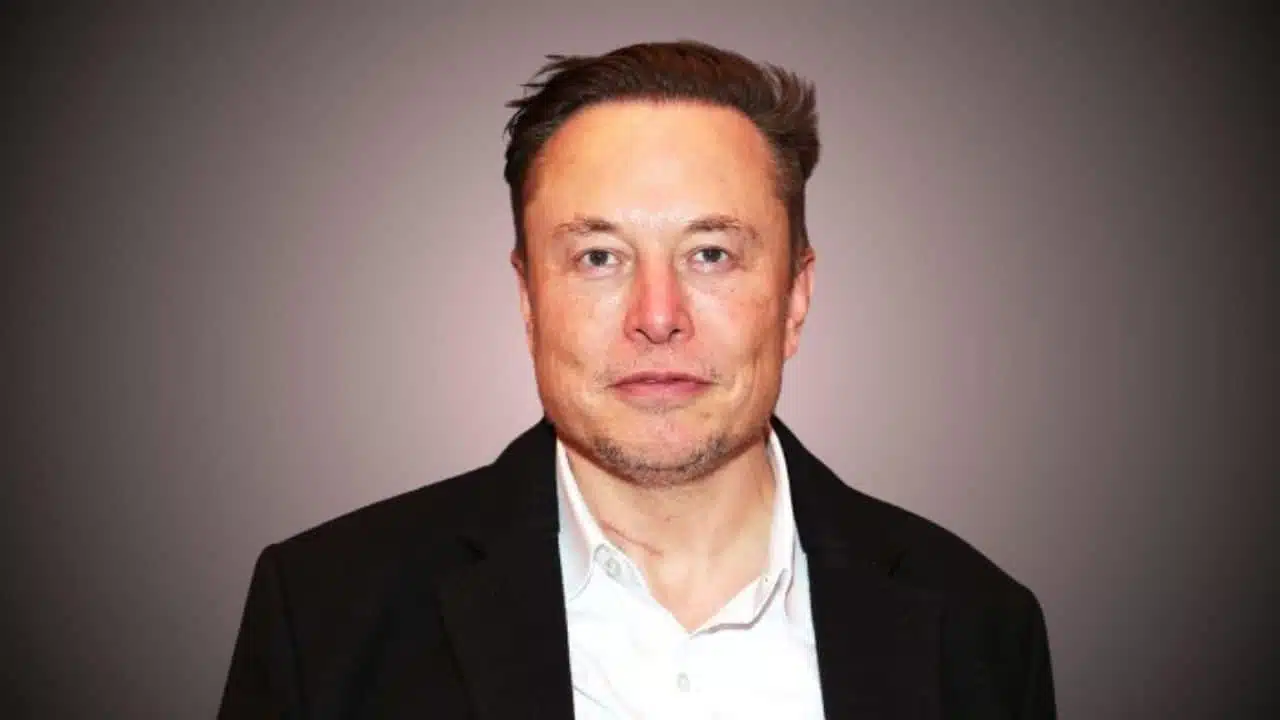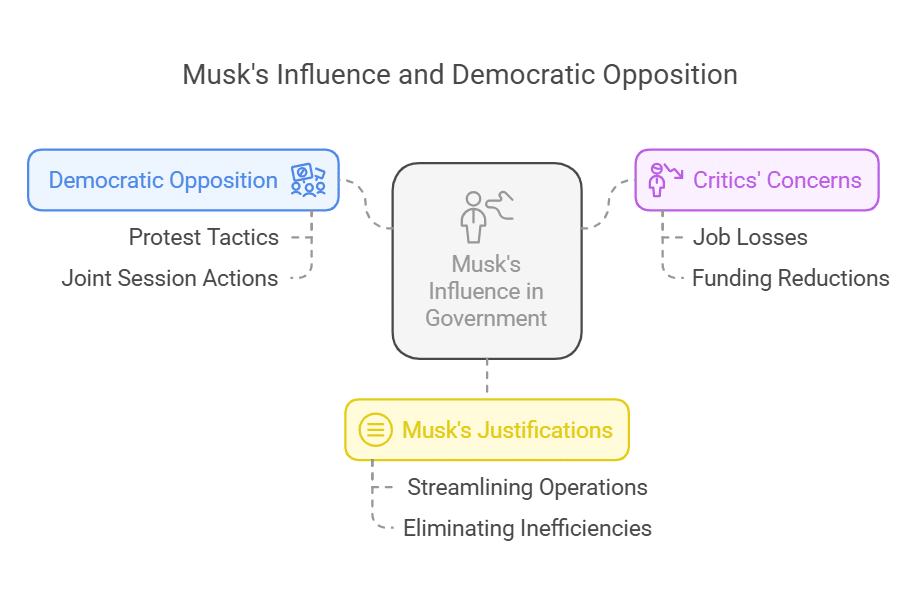Elon Musk, the billionaire entrepreneur and CEO of Tesla, SpaceX, and X (formerly Twitter), has predicted that Republicans will secure a commanding 60-seat supermajority in the Senate following the 2026 midterm elections. Musk made this assertion after former President Donald Trump’s joint session address at the Capitol, where he highlighted GOP achievements and future plans.
Taking to his social media platform, X, Musk posted: “After tonight, I am increasingly convinced that we can get to 60 Senators.” His statement has sparked discussions across political circles, with some viewing it as a sign of growing Republican momentum while others remain skeptical about the feasibility of such a significant electoral shift.
Current Senate Composition and Republican Strategy for 2026
At present, the U.S. Senate is composed of 53 Republicans, 45 Democrats, and two Independents who caucus with the Democrats. To achieve the 60-seat supermajority Musk envisions, Republicans would need a net gain of seven seats in the 2026 midterms.
The upcoming election will see 33 Senate seats up for grabs, with 13 currently held by Democrats and 20 by Republicans. While some of the Democratic seats are in traditionally blue states, there are a few competitive races that could tilt the balance of power in favor of the GOP.
Among the key battleground states, Senator Jon Ossoff of Georgia and Senator Gary Peters of Michigan are facing reelection challenges. Both Georgia and Michigan went red in the 2024 presidential election, favoring Trump over Kamala Harris, with margins of 2.2% and 1.4%, respectively. This has fueled speculation that these seats could be flipped by strong Republican contenders.
Additionally, with Senator Gary Peters announcing his retirement, the Michigan seat will be open, creating a more competitive scenario. Historically, open seats are more vulnerable to party shifts, and with Michigan trending Republican in 2024, it could be a prime opportunity for the GOP.
Meanwhile, all 20 Republican-held seats up for reelection are in solidly red states, meaning they are unlikely to face strong Democratic opposition. However, at least one key Republican senator, Mitch McConnell of Kentucky, has announced his retirement, necessitating a strong replacement to maintain party control.
Musk’s Expanding Role in Government: Leading the Department of Government Efficiency (DOGE)
Beyond his business ventures, Musk has played an increasingly active role in government affairs. Under Trump’s second administration, Musk was appointed as the head of the newly created Department of Government Efficiency (DOGE), an initiative focused on cutting federal spending and reducing bureaucracy.
Since its establishment, DOGE has aggressively pursued cost-cutting measures, eliminating thousands of government jobs, slashing billions in federal spending, and restructuring entire agencies. Some of the most controversial cuts include:
- Massive budget reductions in USAID, which has historically funded international development programs.
- Elimination of research funding for projects such as transgender surgeries on mice.
- Cancellation of foreign aid programs, including an initiative to produce an Arabic version of Sesame Street in the Middle East.
- Cuts to government-funded housing, hotel, and transportation assistance for undocumented immigrants.
The budget-slashing measures have received mixed reactions. While many Republicans applaud the initiative as a much-needed move to reduce government waste, Democrats and advocacy groups argue that these cuts could harm vital public services.
Democratic Opposition: ‘Musk Steals’ Protest at Joint Session
Musk’s growing influence in government has sparked backlash from Democratic lawmakers. During Trump’s joint session address, multiple Democratic senators held up signs reading ‘Musk Steals’ as a form of protest against his role in federal budget cuts.
Critics argue that Musk’s leadership at DOGE has led to widespread job losses and funding reductions for essential programs. For example, proposed DOGE cuts could result in 80,000 job eliminations at the Department of Veterans Affairs, sparking concerns about the impact on healthcare and benefits for veterans. (Source)
Despite this opposition, Musk remains steadfast in his belief that his policies will benefit the country by streamlining government operations and eliminating inefficiencies.
Trump’s Endorsement of Musk During His Address
During his joint session speech, Trump directly acknowledged Musk’s contributions, offering praise for his leadership at DOGE.
“I have created the brand new Department of Government Efficiency—DOGE, perhaps you’ve heard of it—which is headed by Elon Musk, who is in the gallery tonight,” Trump said, prompting applause from the Republican side of the chamber.
Looking up to Musk in the audience, Trump added: “Thank you, Elon. He’s working very hard. He didn’t need this.”
The former president then took a lighthearted jab at the Democratic opposition, suggesting that even they appreciate Musk’s work, though they refuse to admit it. “Everybody here, even this side, appreciates it, I believe,” Trump said, gesturing toward the Democratic section of the chamber.
His remark was met with scoffs and laughter from Democratic lawmakers, further highlighting the partisan divide over Musk’s government involvement.
Is a 60-Seat Supermajority Realistic? Political Analysts Weigh In
Musk’s belief in a Republican supermajority is ambitious. Political analysts caution that while the GOP has momentum, gaining seven Senate seats is historically rare. The last time a party held 60 or more seats was from 1977 to 1979, when Democrats had 61 seats compared to the Republicans’ 38.
According to election forecasters, only two Democratic-held seats—Georgia and Michigan—are currently rated as ‘toss-ups’ by the Cook Political Report. This means that the GOP would need to flip additional seats in more traditionally Democratic-leaning states to reach Musk’s target.
Additionally, while Republicans are unlikely to lose many seats, they must ensure strong candidates in every contested state. Any unexpected losses could derail their path to 60 seats.
Can Musk’s Prediction Come True?
Elon Musk’s confidence in a Republican supermajority reflects the enthusiasm among GOP supporters following Trump’s strong 2024 presidential victory. However, achieving such a feat will require a strategic combination of strong candidate selection, effective campaign messaging, and favorable political conditions.
As the 2026 midterms approach, both parties will be gearing up for what promises to be a fiercely contested election cycle. Whether Musk’s prediction materializes remains to be seen, but his increasing involvement in politics ensures that he will remain a key figure in the national conversation for years to come.






































